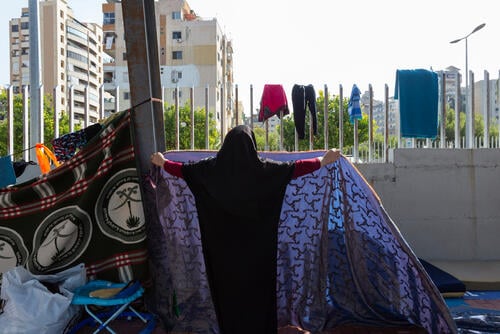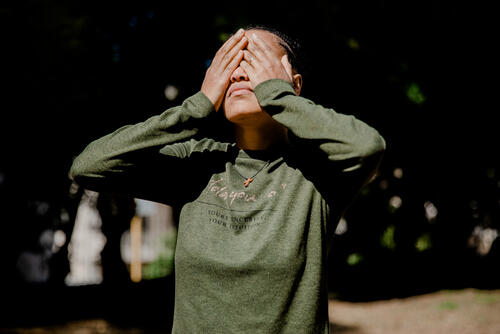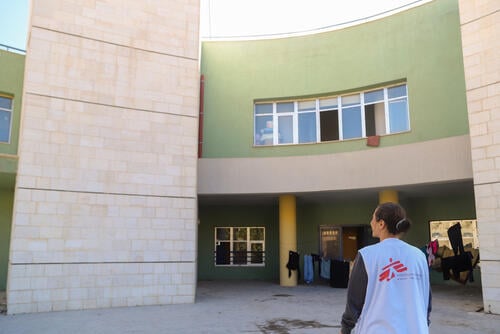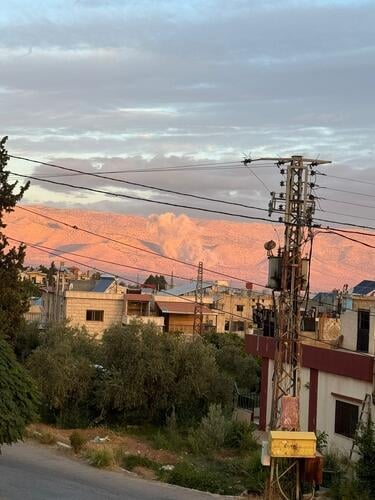Amid the ongoing Israeli bombardment and incursions across southern Lebanon, countless families have been uprooted, many seeking refuge in the coastal city of Saida. Médecins Sans Frontières’ (MSF's) mobile medical teams have been visiting several locations in the southern city, offering general healthcare, medication, and mental health support to people displaced by the violence. Here are some of the testimonies of our patients there:
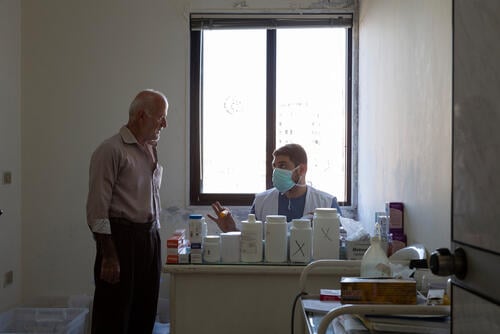
Hassan Kheir Eddine
“There’s nothing like living in your own home,” reflects Hassan Kheir Eddine, 67, an internally displaced Lebanese man with hypertension. He and his wife fled Kfar Melki, in the south of Lebanon, after nearby Israeli bombardments, leaving with only the clothes on their backs. “My sons are also displaced, scattered across the country. That alone is a struggle, but what we are going through is similar to what everyone else is.”
Having been uprooted three times during the recent escalations, Hassan, a retired employee who lost his pension and savings in the 2020 economic crisis, reminisces about the olive harvest and his deep connection to the land he was forced to leave behind.
“There is nothing quite like the south,” he says. “Wherever we go, whatever we lose, and whatever we are offered, we will always come back. I lived through the 1982 Israeli invasion and remember the airstrikes on southern villages then. As we returned to our homes then, we will now.”
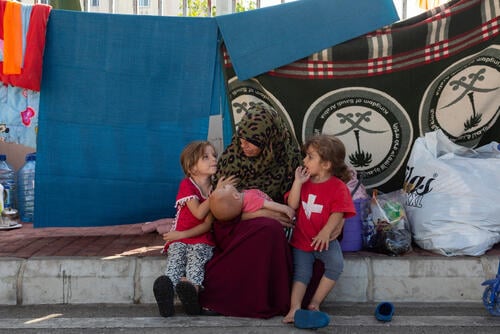
Khadija
Khadija, a Syrian refugee and mother of five, was displaced from Nabatieh with her family. “She’s fading right before my eyes,” says Khadija, pointing to her seven-year-old daughter, who she says suffers from stunted growth. She describes the harsh conditions in the open parking lot by the Saida coastline where they’ve sought refuge.
“We never feel clean. People are competing over food here, and we don’t have enough clean water to wash. We go to the sea to relieve ourselves, but there are often men around.”
Her children are battling various health issues and it's breaking her spirit. “Sidra, 13, has asthma, Hiba, 7, weighs barely 10 kilograms, and Malak, my 8-month-old, has a fever and diarrhoea. I breastfeed her whenever I can, but it’s not always enough, and I can’t properly clean her bottles.”
In a moment of despair Khadija admits, “Sometimes I wish we had stayed and died in an airstrike instead of living like this.”
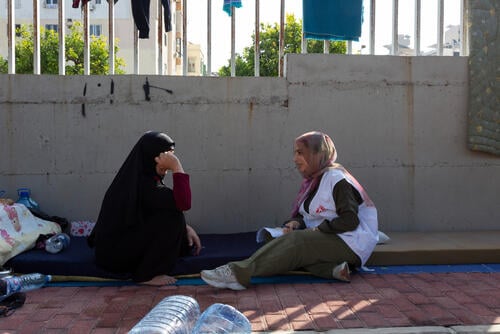
Um Mohammad
Um Mohammad, a 40-year-old Syrian refugee displaced from Qsaibeh, in south Lebanon, has three daughters. She used to maintain her employer's garden, landscaping and building fences around his land. The night she fled Qsaibeh, an airstrike landed dangerously close.
She recalls joining the community with buckets of water to put out the fire, and then her employer told her it was time to leave. She packed a change of clothes for each of her daughters, aged 18, 6, and 4, and grabbed only a blanket, leaving behind the groceries she had just bought that day on her kitchen floor.
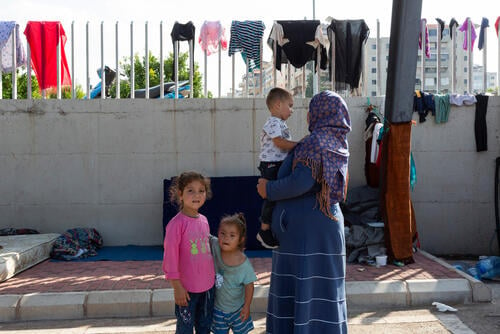
Hala
Hala, 24, is a Syrian refugee and mother of three—Yamen, 2, Rawan, 3, and Razan, 6. She fled from the coastal town of Adloun in south Lebanon amidst airstrikes and the sirens of ambulances. “We left with nothing. We escaped on a motorcycle, but it broke down here in Saida. My husband went back to retrieve our belongings, but everything was stolen.”
Now, they rely on aid for food.
“All my children are sick with vomiting and diarrhoea. Rawan, who has down syndrome, used to receive physical therapy to walk and move. We had high hopes that she would begin verbal communication through speech therapy soon, and she had made so much progress. But now, all that is gone. She requires lots of medications and is often bullied by other children for not being able to express herself.”
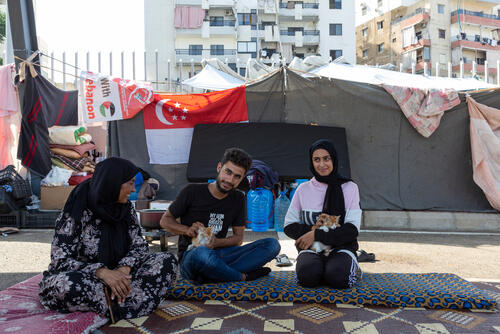
Shams Al Mahmoud, Marimar, and Kazem
Shams Al Mahmoud, whose first name means 'sun' in Arabic and is a Syrian refugee, remains as bright and warm as ever, despite the hardships she and her family have endured. Along with her children—Mimar, 24, Mimas, Kazem, 20, and Marimar,14—Shams was displaced from Kfar Roumane and now lives in a parking lot in Saida, southern Lebanon.
With an endearing smile, she recounts the moments her family escaped Israeli airstrikes in the town they had called home for over a decade, fleeing for 12 hours on foot to finally find relative safety in Saida. A few days later, Kazem and one of his sisters made a dangerous trip back to their former home on a borrowed motorcycle to rescue their two kittens, Simba and Mimi.
“We thought of them as we were leaving,” says Marimar, as she fondly strokes one of the kittens. “But the airstrikes were too close. I’m so relieved we could go back for them.”
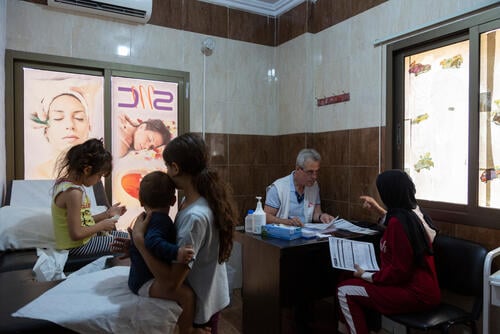
Najah Ashour
Najah Ashour, a Syrian refugee living in south Lebanon, was displaced once again along with her daughters—Maya, 11, Lujain, 6, and Sary, 9 months—after airstrikes struck the southern town of Baisariyeh. She is among the 1.2 million people displaced by the ongoing Israeli bombardments. While the war affects everyone, minority groups like Syrian refugees, migrant workers, the elderly, and people with disabilities face even greater risks of discrimination and exclusion, further limiting their access to healthcare and humanitarian aid.



